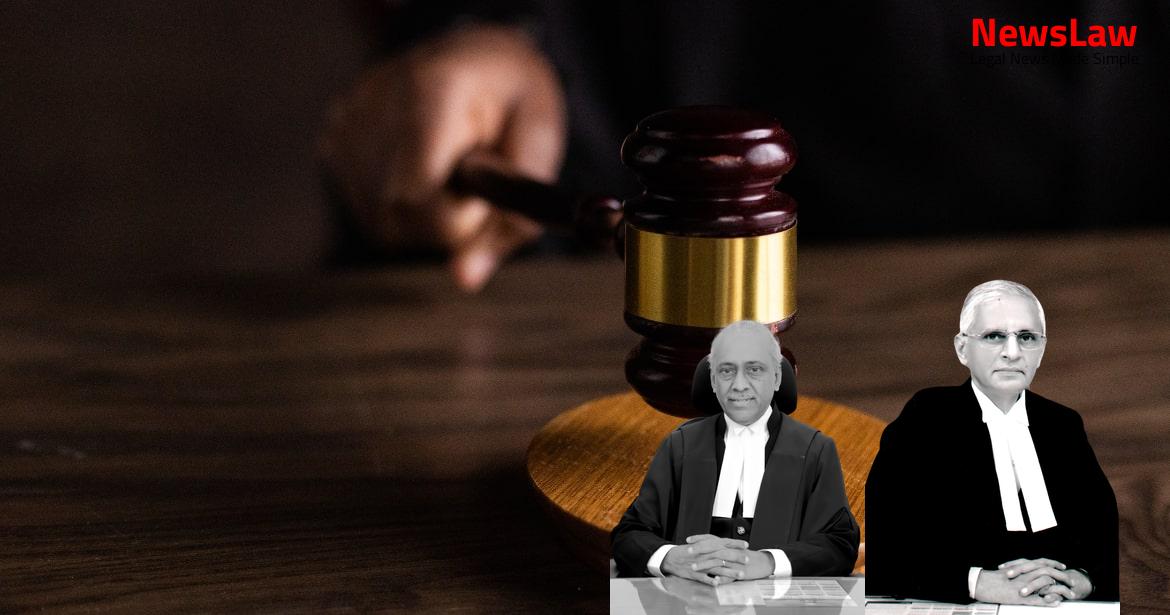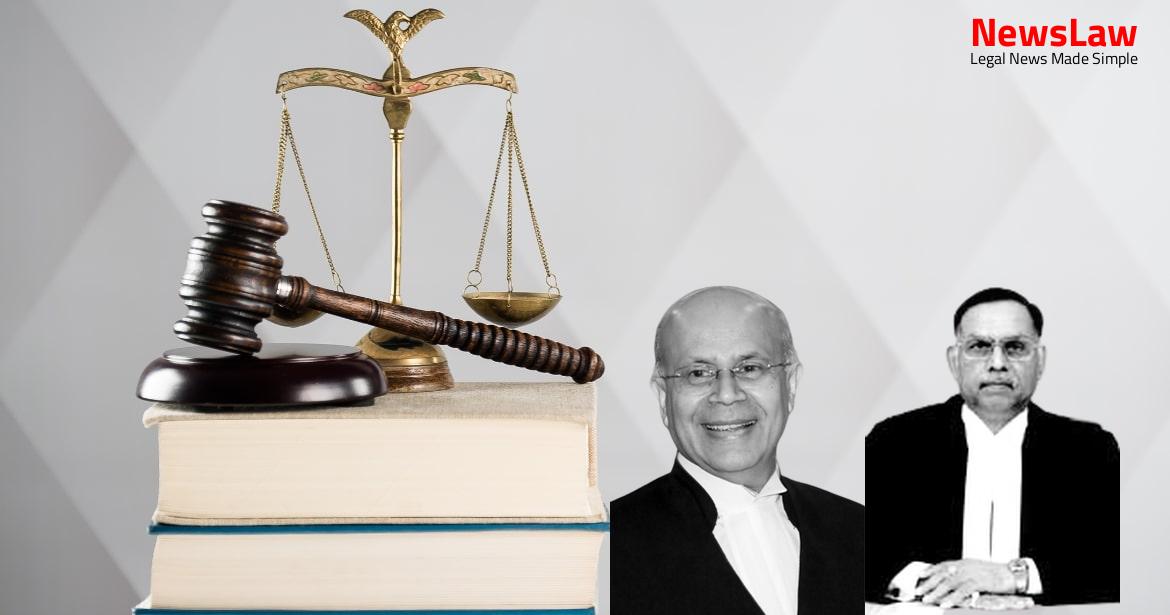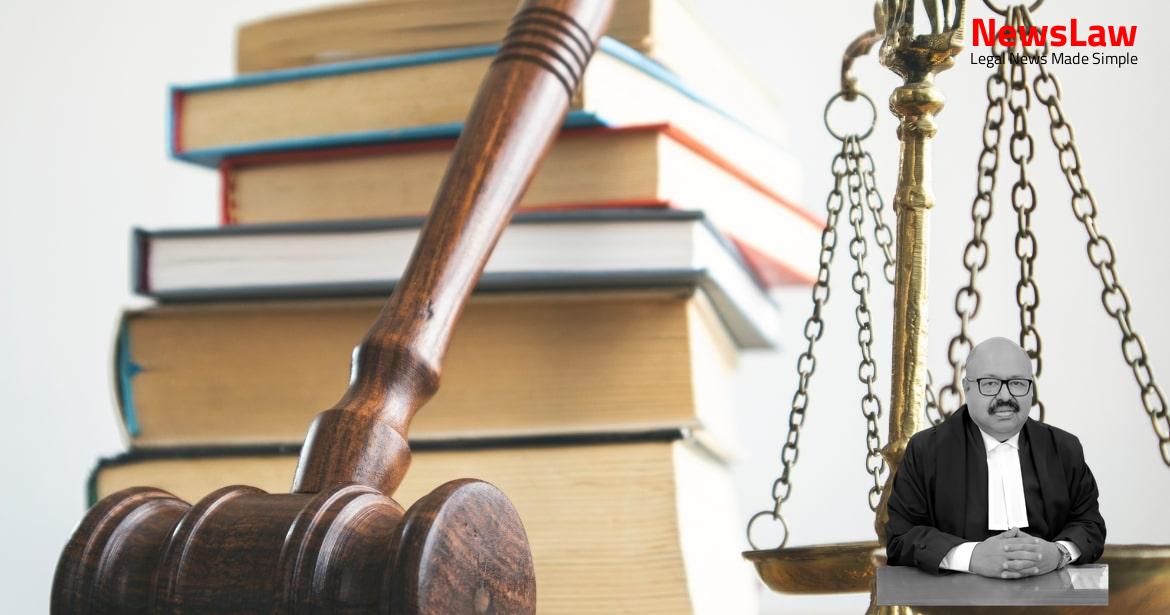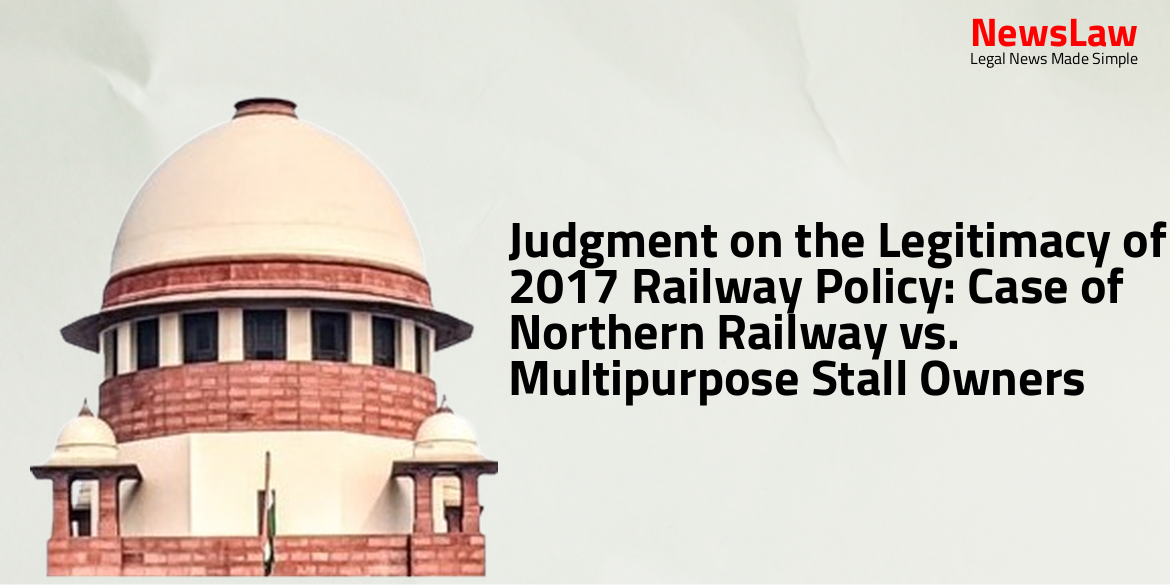This blog delves into the legal intricacies of a recent company board dispute case, focusing on the court’s thorough legal analysis. The case involves complex matters of corporate law and highlights the significance of court judgments in resolving disputes within company boards. Stay tuned to unravel the depth of legal considerations in this intriguing case.
Facts
- Certain actions were taken against Mr. Cyrus Pallonji Mistry (CPM) during the meetings of shareholders of Tata Industries Limited, Tata Consultancy Services Limited, and Tata Teleservices Limited.
- CPM was removed from Directorship of these companies through separate Resolutions.
- These removals were not significant enough to invoke sections 241 and 242 of the Companies Act as they did not meet the threshold requirement.
- Mr. Cyrus Pallonji Mistry was restored to his position as Executive Chairman of Tata Sons Limited and Director of Tata Companies for the remainder of his tenure.
- RNT filed two appeals against the NCLAT’s order on similar grounds.
- CPM was appointed as a Non-Executive Director on the Board of Tata Sons on 10.08.2006.
- Certain decisions were made during the General Meeting on 01.08.2012 to not exercise power against the Appellants and other minority members.
- Various appeals and applications were filed, but many were dismissed by NCLT and NCLAT.
- Tata Sons have filed 2 more appeals in C.A.Nos. 263 and 264 of 2020.
- There is a requirement of an affirmative vote in the hands of select Directors under Article 121 or at least should have restricted the affirmative vote to matters covered by Article 121A.
- Three operating companies have filed 6 Civil Appeals, expressing grievance that CPM has been directed to be reinstated as Director of these companies for the rest of the tenure.
- The original complainants before NCLT who initiated proceedings under Sections 241 and 242 of the Companies Act, 2013 are Cyrus Investments Private Limited and…
Also Read: Electoral Malpractices in Mayor Election
Issue
- Original 21 reliefs sought by the complainant companies listed in para 153 (A) to (U).
- Additional reliefs sought through amendments filed on 10.2.2017 include reinstatement of a representative on the Board of Tata Sons and amendment of Articles of Association for proportional representation.
- Further prayers sought through an amendment dated 31.10.2017 include setting aside a resolution on conversion into a private company, striking off Article 75, and stay on the resolution effects.
- Directive sought for reinstatement of a representative on the Board and amendment of Articles of Association for proportionate shareholder representation.
- Modification of original relief seeking to strike down certain Articles limiting the affirmative voting rights and ensuring representation on the Board and committees of Tata Sons.
- Issues under consideration involve the formation of opinions, adherence to settled principles, and justification of characterizing certain rights as oppressive by the Appellate Tribunal.
Also Read: Balancing Power and Transparency: Electoral Bonds Struck Down, Disclosure Mandated
Arguments
- Shri Tushar Mehta justified the RoC’s action in issuing an amended certificate of incorporation for Tata Sons based on the company’s Articles of Association.
- The RoC followed the existing provisions of the Act while making the amendment.
- NCLAT made remarks without hearing the RoC, wrongly attributing interference to Soonawala in Tata Sons’ affairs.
- CPM sought advice from Soonawala on financial matters of Tata Sons.
- Jurisdiction under Section 423 of the Companies Act, 2013 primarily discussed along with the advisory role of Soonawala in Tata Sons.
- SP group’s contention on Director’s fiduciary responsibility highlighted, emphasizing allegiance to the company over nominators.
- TCS argued that NCLAT lacked jurisdiction to direct the reinstatement of CPM as TCS was not a party to the original proceedings or appellate proceedings.
- TCS followed due process in the removal of CPM, providing him with an opportunity to make a representation against his removal as per the Companies Act.
- The majority of shareholders, including public institutional shareholders, approved the resolution for the removal of CPM from the board of directors of TCS.
- SP Group did not meet the requisite threshold under section 244 of the Companies Act, 2013 for action against TCS.
- TCS contended that there was no allegation of oppression and mismanagement made out against them.
- TCS claimed that they were denied the opportunity of a hearing, which goes against the principles of natural justice.
- NCLAT lacked jurisdiction to grant reinstatement as CPM’s tenure had already ended by the time of the impugned order.
Also Read: Recall of Resolution Plan Approval: Legal Analysis
Analysis
- Quorum at a general meeting of the holders of the Ordinary Shares of the Company shall be constituted only if the members personally present are not less than five in number, including at least one authorized representative jointly nominated by the Sir Dorabji Tata Trust and the Sir Ratan Tata Trust as long as the Tata Trusts hold at least 40% of the paid-up Ordinary share capital.
- Section 47(1)(b) of the 2013 Act states that the rights of a member of a company limited by shares shall be in proportion to his share in the paid-up equity share capital of the company.
- The Companies Act, 1985 was repealed by the Companies Act, 2006 which was the longest Act in British parliamentary history with 1300 sections and 16 schedules.
- Sections 459 to 461 of the Companies Act, 1985 were included in Part XVII under the caption ‘Protection of Company’s Members against Unfair Prejudice’.
- Section 459 allows a member of a company to apply to the court for relief in cases of unfair prejudice.
- Section 460 allows the Secretary of State to apply to the court if the company’s affairs are being conducted in a prejudicial manner.
- Section 461 provides for orders on application by a company member or the Secretary of State in cases of unfair prejudice or oppression.
- The court can make orders to regulate the company’s affairs, purchase shares, or conduct of the company’s affairs in the future under these sections.
- The order issued by the Tribunal under these sections shall be duly filed with the Registrar.
- The tribunal may also make interim orders for regulating the company’s affairs pending a final order.
- If the company’s memorandum or articles are altered by the order, the company cannot further alter them without the leave of the Tribunal.
- The court of Appeal reversed it by applying the tests of (i) bonafide exercise of power in the interest of the company; and (ii) whether a reasonable man could think that the removal was in the interest of the Company.
- While reversing the decision of the Court of Appeal, the House of Lords held that the formula ‘bonafide interest of the company’ should not become little more than an alibi for a refusal to consider the merits of the case.
- Equity enables the Court to subject the exercise of legal rights to equitable considerations, namely considerations that are of a personal character.
- Mere lack of confidence between majority shareholders and minority shareholders is not sufficient to invoke the just and equitable clause.
- The lack of confidence must be based on a lack of probity in the conduct of the company’s affairs.
- Functional deadlock is not applicable in the present case.
- The directors of the company have fiduciary duties towards the company and their allegiance should solely be to the company.
- The court should have the power to impose a just and equitable settlement on the parties in dispute.
- The Companies Act, 1862 consolidated the laws related to trading companies and associations.
- Shareholders should have the right to participate in decision-making processes regardless of the majority shareholders’ preferences.
- Article 75 of the Articles of Association is an exit option provision.
- S.P. Group cannot challenge Article 75 and seek fair value compensation.
- Paragraph 72 of the application requires adjudication on various factual items for ownership separation.
- Valuation of S.P. Group shares depends on Tata Sons’ stakes and funds raised by SP group.
- In an appeal under Section 423 of the Companies Act, 2013, the focus is on legal questions.
- Encouragement of amicable separation is highlighted in both English and Indian statutory regimes.
Decision
- The Company Petition C.P. No 82 of 2016 filed before NCLT by the S.P. Group is dismissed.
- The appeal C.A. No.1802 of 2020 filed by Cyrus Investments Pvt. Ltd., and Sterling Investments Corporation Pvt. Ltd. is dismissed.
- There will be no order as to costs.
- All IAs including separation of ownership interests in Tata Sons (IA No.111387 of 2020) are dismissed.
- The Court cannot adjudicate on fair compensation at this stage.
- Parties are suggested to take the Article 75 route or any other legally available route for fair compensation.
- All appeals except C.A. No.1802 of 2020 are allowed, setting aside the NCLAT order dated 18.12.2019.
- The specific prayer regarding fair compensation will not be decided by the Court.
Case Title: TATA CONSULTANCY SERVICES LIMITED Vs. CYRUS INVESTMENTS PVT LTD (2021 INSC 217)
Case Number: C.A. No.-000440-000441 / 2020



